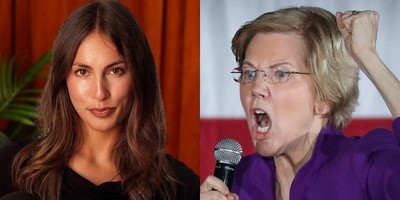In 1993-1994, when the Clintons tried to pass health-care reform, the opposition to their proposals was concentrated among middle-age voters, galvanized by the Harry and Louise ads. But opposition to the Obama proposals centers among the elderly, who suspect that it will mean a sharp curtailment of their medical care.
The Fox News-Opinion Dynamics Poll of July 21-24 found that voters over 65 opposed the Obama plan by 35 percent to 47 percent. They oppose a government-run insurance plan to compete with private plans by 31 percent to 56 percent and believe that the Obama plan will "cost me money" rather than "save me money" by 57 percent to 20 percent! Only 24 percent of the elderly feel that the Obama plan will lead to better health care for "you and your family," while 45 percent believe the quality of care will be worse.

By 61 percent to 29 percent, elderly voters reject the idea that "it is possible to have major health-care reform without increasing the budget deficit." And they also say it is impossible to have it without raising taxes, by 65 percent to 29 percent. Three-quarters expect their personal taxes to go up if the plan passes.
Oddly, for a population that now gets its health services through government-run Medicare, they would rather be in a privately run system than one managed by the government by 67 percent to 7 percent.
Most resistant to change, the elderly voters cite fears that they "will have to change existing health-care arrangements" as the greatest reason to oppose the Obama plan.
The political impact of these findings is enormous. Instead of facing an inchoate unease about Obama's proposals, Democrats who vote for them are likely to find themselves running into the teeth of strong, concentrated elderly opposition. Fears of rationing and the denial of care are stoking opposition to a fever pitch among the elderly. So widespread is the dissatisfaction with the Obama plan that it may drive the elderly into Republican ranks as surely as Bush's Social Security reforms alienated them in 2005 and drove them into the arms of Democrats.
Recommended
The factors that animate elderly opposition to the Obama plan are not generally those under discussion in Washington. The polling shows that the elderly are not as fixated on macro issues like the deficit or what taxes must be raised to pay for the program as they are on very specific personal concerns about their continued access to quality medical care. Seniors are less interested in whether there will be a government insurance option than whether they will face rationing of care.
Open-ended questions on a number of surveys find the elderly very worried that they will not be able to get quality-of-life treatments under the Obama program, such as hip or knee replacements. Others worry that the program will encourage them to give up when facing serious illness and enter hospices to minimize costs to the government.
The Clintons lost the elections of 1994 primarily because of the tax increases the Democratic Congress passed. Health-care reform was not nearly as important in their defeat as the tax hikes. But in the elections of 2010, the elderly are likely to respond harshly to the health-care reforms and, increasingly, may vote Republican as a result.
For his part, Obama faces a tough dilemma. The more he enlists his personal popularity in his campaign for health-care reform, the more his job approval ratings will drop -- as they have recently. And the lower these ratings go, the less likely he is to be able to persuade his party to pass his health-care reforms.
These survey results will come as no surprise to congressmen and senators who go home in August and take soundings in their districts. The opposition of their elderly constituents to the plans making their way through Congress will be obvious. And when they feel the heat, they will hopefully see the light.

























Join the conversation as a VIP Member